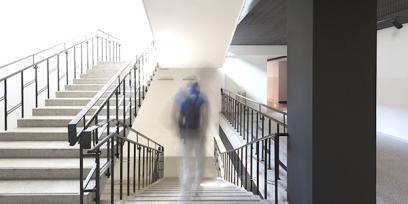As school districts gear up for the fall and the Trump administration pressures them to reopen despite insufficient COVID-19 safety measures, the AFT has announced it will “use every action and tool available” to fight unsafe school reopening plans—including “supporting local and/or state affiliate safety strikes on a case-by-case basis as a last resort.”
The July 28 announcement, made during the AFT’s biennial convention, amplifies the urgent need to put the safety of students, staff and communities first. “Nothing is off the table” when it comes to protecting them, states a resolution passed by the AFT executive council shortly before the announcement was made. The AFT is pulling out all the stops, with its members joining state and local reopening committees to lend their expertise as the practitioners closest to the everyday reality of conducting classes and caring for children in public schools, filing grievances when employers fail to keep schools safe, and initiating lawsuits that will hold officials accountable for health and safety.
“Let’s be clear: Just as we have done with our healthcare workers, we will fight on all fronts for the safety of students and their educators,” said AFT President Randi Weingarten in her State of the Union speech. “But if the authorities don’t protect the safety and health of those we represent and those we serve, as our executive council voted last week, nothing is off the table—not advocacy or protests, negotiations, grievances or lawsuits or, if necessary and authorized by a local union, as a last resort, safety strikes.”
Schools are an important community linchpin, and more than three-quarters of AFT members want to return to school, provided the safety measures outlined in the AFT’s new reopening plan are in place. But the Trump administration has willfully denied the science on how to safely reopen schools and has failed to provide a national plan. The U.S. Senate has still not passed a new stimulus bill that would provide the resources necessary to reopen safely.
The AFT is actively urging senators to pass legislation to help and has already outlined details for how to reopen safely. As described in the resolution, school buildings should open only in places where:
- The average daily community infection rate among those tested for COVID-19 is below 5 percent and the transmission rate is below 1 percent.
- There is effective disease surveillance, tracing and isolation in the region.
- Staff who are at high risk have access to special accommodations.
- There is a statewide, city- and/or community-level authority empowered to trigger closure in the event of a spike in infection or when public health standards aren’t being met.
- The district and school have funded safeguards and practices including 6-foot physical distancing, face coverings for students and staff, access to hand-washing facilities, resources and staffing to clean and sanitize facilities, and necessary updates to ventilation and building systems.
- AFT members and leaders, families and community partners are included in the reopening planning process.
More-detailed information is included in the AFT’s new blueprint, “Reopening School Buildings Safely.” Meanwhile affiliates are actively engaged in plans for the upcoming school year, weighing in at public meetings and talking with policymakers at the state and local levels, holding virtual town halls, conducting socially distant protests against unsafe conditions, and lobbying their elected representatives in Congress for the funding they need to protect themselves and their students.
In Florida, which is seeing a spike in COVID-19 cases, the Florida Education Association—with help from the AFT—has filed a suit against Gov. Ron DeSantis blocking his statewide mandate to open schools in August, and United Faculty of Florida held a press conference calling for an all-remote semester. Large affiliates, including the California Federation of Teachers and Texas AFT, have developed science-based, education-centered reopening plans and checklists tailored to their states. The United Federation of Teachers in New York City has negotiated an agreement on a package of measures including PPE, medical accommodations for staff, social distancing, cleaning and disinfecting, and scheduling for blended instruction. Massachusetts unions are pressing for a phased reopening, beginning with school staff gathering to prepare, then checking with students and their families.
These and so many more affiliates across the nation are advocating to keep their communities safe, with firm plans to keep education intact and fully and equitably funded for students who are hungry to learn.
We must reopen schools safely, says Weingarten. “We know that kids need in-person learning and that remote instruction is no substitute for it, but it has to be safe.”
[Virginia Myers]

